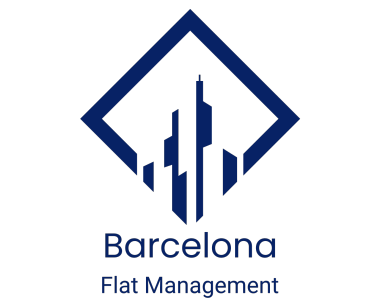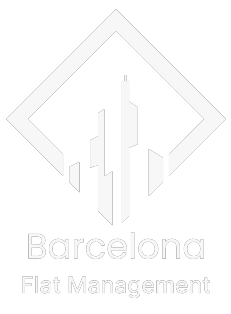Stepping into the realm of property ownership in Barcelona brings with it the necessity to navigate a complex web of local laws and regulations. For new flat owners, understanding these legalities is not just a formality but a crucial aspect of ensuring a smooth and compliant ownership experience.
This article aims to demystify the legal landscape surrounding property ownership in Barcelona, offering a detailed guide on the essential laws, tax obligations, and regulations that every new flat owner should be well-acquainted with, thereby laying the groundwork for informed and secure property management.
Securing Your Investment: The Essentials of Property Registration in Barcelona
The journey of acquiring a flat in Barcelona begins with understanding the process of property registration and ownership transfer. This legal procedure is pivotal in ensuring your rights as a new flat owner are firmly established.
Firstly, once you’ve agreed to purchase a property, a contract (‘contrato de compraventa’) is signed, detailing the terms of sale. Following this, the most crucial step is the property registration. This process involves transferring the property title from the seller to the buyer, which is formalized in a public deed (‘escritura pública’) and executed in the presence of a notary.
The next step is registering the deed with the local property registry (‘Registro de la Propiedad’). This legal formality is essential as it serves as the official record of your ownership, safeguarding your legal rights. The documents required include the original signed deed, proof of payment of the property transfer tax (‘Impuesto de Transmisiones Patrimoniales’), and your identification documents.
For non-residents, obtaining a foreigner identification number (NIE) is also necessary. This process, while intricate, is a critical part of securing your property investment in Barcelona and ensuring that all legal requirements are met for a smooth transition of ownership.
Navigating the Fiscal Landscape: Tax Responsibilities for Flat Owners in Barcelona
Owning a flat in Barcelona comes with specific tax obligations that are important to understand and manage. The primary tax for property owners is the ‘Impuesto sobre Bienes Inmuebles’ (IBI), an annual property tax calculated based on the cadastral value of the property. It’s essential to factor this ongoing cost into your budget.
In addition to IBI, new owners must also pay a one-time Property Transfer Tax (Impuesto de Transmisiones Patrimoniales) if purchasing a resale property, or VAT (IVA) if the property is new. The rate of these taxes varies, and it’s crucial to be aware of the exact percentage applicable to your property type and value.
There are certain exemptions and reductions available, such as those for properties used as primary residences, or for owners meeting specific age or income criteria. It’s worthwhile to consult with a tax advisor to understand if you qualify for any of these benefits.
Effective management of these financial obligations involves timely payment and staying updated on any changes in tax laws. Setting aside funds annually for IBI and understanding the nuances of other property-related taxes can ensure a smooth and compliant financial journey as a flat owner in Barcelona.
The Landlord’s Rulebook: Understanding Rental Laws in Barcelona
For flat owners in Barcelona who wish to rent out their properties, comprehending the rental laws and acknowledging landlord responsibilities is crucial. In Barcelona, rental agreements are governed by the Urban Lease Act (Ley de Arrendamientos Urbanos), which outlines the rights and obligations of both landlords and tenants.
One of the key responsibilities of a landlord is ensuring the property is habitable and meets health and safety standards. This includes maintaining essential services like water, electricity, and heating. Landlords are also obligated to handle repairs and upkeep unless damage is caused by the tenant’s negligence.
Regarding the duration of leases, the minimum term is usually five years, after which the contract may be extended annually if neither party opposes. Rent increases are typically tied to the Consumer Price Index (CPI) and should be stipulated in the contract.
Security deposits are standard, typically one month’s rent for unfurnished flats and two months for furnished ones. Landlords must return this deposit at the end of the lease, barring any deductions for damages.
Additionally, it’s important to be aware of the regulations regarding evictions and notice periods. Familiarity with these laws ensures that as a landlord in Barcelona, you operate within legal boundaries, maintaining a fair and professional relationship with your tenants.
Refurbishing Responsibly: Complying with Barcelona’s Building Regulations
Renovating a flat in Barcelona is not just a matter of creativity and style; it also involves navigating a set of stringent building regulations. Understanding and complying with these local codes and standards is vital for any renovation project, no matter the scale.
Firstly, it’s essential to know that most significant renovation works require a permit from the local council. This includes structural changes, facade alterations, and substantial internal modifications. Even for smaller projects, such as updating the electrical system or plumbing, it’s advisable to check if a permit is needed.
When applying for a permit, detailed project plans must be submitted, often requiring the involvement of a certified architect or engineer. These professionals can ensure that your renovation plans adhere to local building codes, which cover aspects like safety standards, historical preservation, and environmental regulations.
It’s also crucial to be aware of the regulations specific to your building or neighborhood, especially if it’s located in a heritage area. In such cases, there might be restrictions on the types of changes you can make.
Adhering to these regulations not only ensures legal compliance but also contributes to the safety and integrity of your property. Taking the time to understand and follow Barcelona’s building and renovation regulations can save you from potential legal complications and fines down the line.
Laying the Legal Foundations: Ensuring a Smooth Property Journey in Barcelona
Navigating the property landscape in Barcelona requires a solid understanding of various legal aspects and regulations. From the intricacies of property registration and ownership transfer to the nuances of tax obligations, new flat owners must be well-versed in these areas.
Additionally, understanding the rental laws and landlord responsibilities is crucial for those considering leasing their properties. Complying with local building and renovation regulations, including obtaining necessary permits, is also key. Adhering to these laws and regulations not only ensures compliance but also provides peace of mind.
For a hassle-free property ownership experience in Barcelona, being informed and proactive about these legal requirements is indispensable. This foundational knowledge sets the stage for a successful and rewarding journey in the world of property ownership in this vibrant city.













